If you have ever stood in front of the mirror and wondered how to feel a little better in your skin—less worn down, more balanced—you're not alone. Most of us are moving too fast, overcommitted, and over-scrolling our way into sluggish routines that chip away at our health. But here’s the thing: tending to your well-being doesn’t have to mean a total lifestyle overhaul. You don’t need a Peloton subscription, a new morning smoothie, or a closet full of athleisure. What you do need is a few solid head-to-toe strategies—simple, overlooked, surprisingly effective ones—that slip easily into the flow of a regular day. Consider this your gentle, practical guide to tuning back in and taking better care.
Start at the Top: Quieting the Mind Before It Runs the Show
Before your feet even hit the floor in the morning, your brain is already buzzing with to-dos. The inbox, the bills, the what-did-I-forget worries. Giving yourself even five minutes of quiet first thing—a real pause, not just a scroll through your phone—can anchor the entire day. Try it tomorrow: sit up in bed, breathe slowly, and let the thoughts come and go without chasing them. You’re not meditating for Instagram, you’re just offering your mind a soft landing instead of a full sprint.
Finding Meaning in the Work You Do
It’s hard to feel fully well if you’re spending most of your waking hours in a job that drains you. Career fulfillment isn’t a luxury—it’s a pillar of long-term mental and emotional health, and sometimes the most life-giving move is choosing to pivot, grow, or start fresh. Going back to school can be a powerful way to realign with your values and sharpen your skills, especially when you can choose from an array of accredited online programs; for example, you can easily find online healthcare programs if you wish to work in healthcare administration. Whatever direction you take, online programs are ideal for working professionals—flexible enough to fit into your life, yet structured enough to propel it forward (you might find this helpful).
Your Eyes Deserve a Break (and a Look Outside)
If your screen time is pushing double digits, join the club. Our eyes were never meant to lock into tiny glowing rectangles for hours on end. What helps more than you’d expect? The 20-20-20 rule: every 20 minutes, look at something 20 feet away for 20 seconds. Better yet, get outside, even if it’s just to the stoop. Natural light resets your circadian rhythm, helps you sleep better, and gives your eyes the kind of focus shift they need to stay sharp.
A Little Face TLC Goes a Long Way
No, you don’t need a seven-step skincare routine. But a few moments of attention to your face—especially first thing in the morning—can be grounding in a way that's more emotional than cosmetic. Splash your face with cold water to reduce puffiness and signal to your nervous system that it’s time to wake up. Gently massaging a simple moisturizer into your cheeks and jaw gives you a moment to check in. You might even notice stress settling into your face before it burrows into your shoulders.
Don’t Forget the Mouth—It's a Window to the Gut
You brush your teeth. You maybe floss. But here’s the trick: what happens in your mouth isn’t just about cavities. Oral health is deeply tied to your gut and heart health, and even low-grade inflammation in your gums can start a chain reaction elsewhere. Start with a tongue scraper in the morning (a weird but quick game-changer), and if you’re rushing through your brush, slow down. Two full minutes. No texting. Just you, the toothbrush, and your microbiome getting its act together.
Shoulders Down, Friend
We carry the world in our shoulders. Every deadline, every missed call, every tense conversation—yep, right there in your upper back and neck. Most of us don’t even realize we’re scrunching until someone points it out. Here’s a good habit: set a phone reminder every few hours that just says “shoulders.” Take a breath, roll them back, drop them down. It’s such a tiny thing, but doing it throughout the day keeps tension from building like a vice grip.
Your Hands Are Telling on You
Your hands do more than hold coffee cups and fire off texts. They are constantly in motion, constantly in use—and often, they’re the first to dry out, stiffen up, or show signs of fatigue. Moisturizing regularly, especially after washing, isn’t about vanity; it’s about maintaining one of your most useful tools. And if you're typing or scrolling a lot, do a few wrist circles or stretch your fingers out wide every hour or so. It feels silly until it feels necessary.
Your Gut Wants You to Slow Down (Just a Bit)
We tend to think of digestion as something that happens after the meal. But your gut is processing every bite, every rushed chew, every distracted snack while you’re walking or watching. Sitting down to eat, even for five minutes, signals to your nervous system that it’s time to digest instead of defend. Your body can’t do both at once. Chew a little more than you think you need to. Put the fork down between bites. These aren’t just manners—they’re part of the chemistry of better digestion.
Your Legs and Feet Need Small Wins
You don’t need to hit 10,000 steps a day. You just need to not let your legs and feet spend twelve hours a day dormant. Try standing during one phone call. Walk to the farthest bathroom in your building. Do a slow calf stretch while brushing your teeth. These micro-movements add up, not just for circulation, but for your sense of momentum. Physical stillness can breed mental stuckness, and sometimes all it takes to shake off a mood is the simple act of moving your feet.
You don’t need to become a new person. You don’t need a morning ritual that takes two hours or a wellness plan so complicated it adds stress instead of relieving it. What you need is already within reach: small, specific, whole-body check-ins that remind you you're not a machine, you're a person. Take care of your head. Tend to your toes. The rest tends to follow.
Dorothy Watson grew up with a single mother who wasn't properly diagnosed with bipolar disorder for over a decade. In her mother’s honor, she created Mental Wellness Center to support those who are working toward improving their mental health.






















